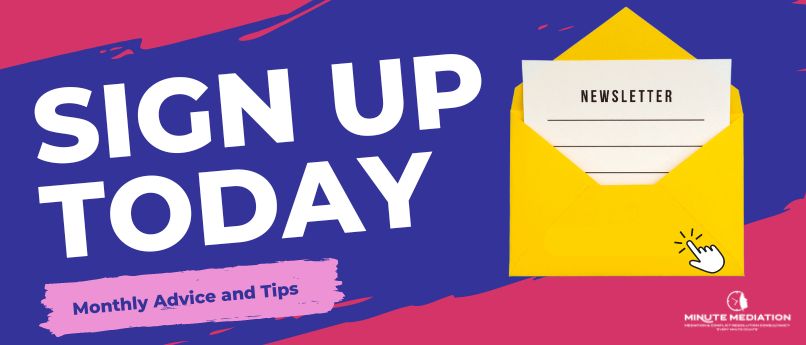3 Strategic Tips That Parties Should Consider When Mediating Disputes

Conflicts can arise anywhere and anytime. They can be the result of differing needs, interests, opinions, or simply miscommunication. Letting things escalate to the point of no return is the worst thing you can do. Not only does it create an unproductive environment for the two involved parties, but other people are affected too.
If you’ve decided to take the high road and work out your differences, here are three strategic tips that all parties—be it the mediator or those in conflict—can use to solve a dispute:
1. Keep your emotions in check
Staying calm and controlling your emotions is the first tip I recommend. Random outbursts or aggressiveness won’t do much for you except make the dispute worse. Learn to empathise and put yourself in the other’s shoes. Everyone has their own problems and stress factors at work and home. The last thing you want to do is aggravate people and make them dislike you more.
This will hinder conflict resolution as people are less willing to listen to other perspectives. Remember, your goal is to solve the problem. Negative emotions would only impede that. So keep your cool, remain calm, and that’ll help others do the same. This is why getting an experienced mediator who’s impartial and independent can help. They excel at facilitating conversation and creating a safe environment where parties can express their emotions. With a clear focus, they are able to help parties to compromise and help them to see both sides and facilitate solutions guided by the parties.

2. Focus on the problem, not the person
When conflict arises, it’s human nature to forget the problem that caused it and instead attack the person. It’s easy to think that by downplaying the other person’s character or integrity, you can win an upper hand—this is far from the truth.
If anything, the conversation diverges, and you start bringing up past events that have nothing to do with the issue at hand. This is counterproductive and widens the gap between conflicting parties. Instead of moving towards problem-solving, we get personal, and that’s when things get heated. Focusing on the problem allows you to clear your mind and helps you focus on the current situation.
3. Ask questions, give feedback, take advice.
Making your case is just one aspect of conflict resolution—there are other ways to engage with other parties. This includes asking questions when there’s confusion, giving feedback regarding a point of discussion, and taking advice when needed.
Mediators are particularly helpful for this task as they help open the floor for other input. They help emphasise certain points by asking to elaborate or help open up reserved parties by asking for their opinions. Doing so brings more input, ideas, and solutions to the table, which paves the path towards resolution.
Working with an experienced mediator can help you settle disputes more effectively. Avinder Laroya at Minute Mediation can help you with this. Get in touch today for expert mediation services and other commercial mediation solutions.

